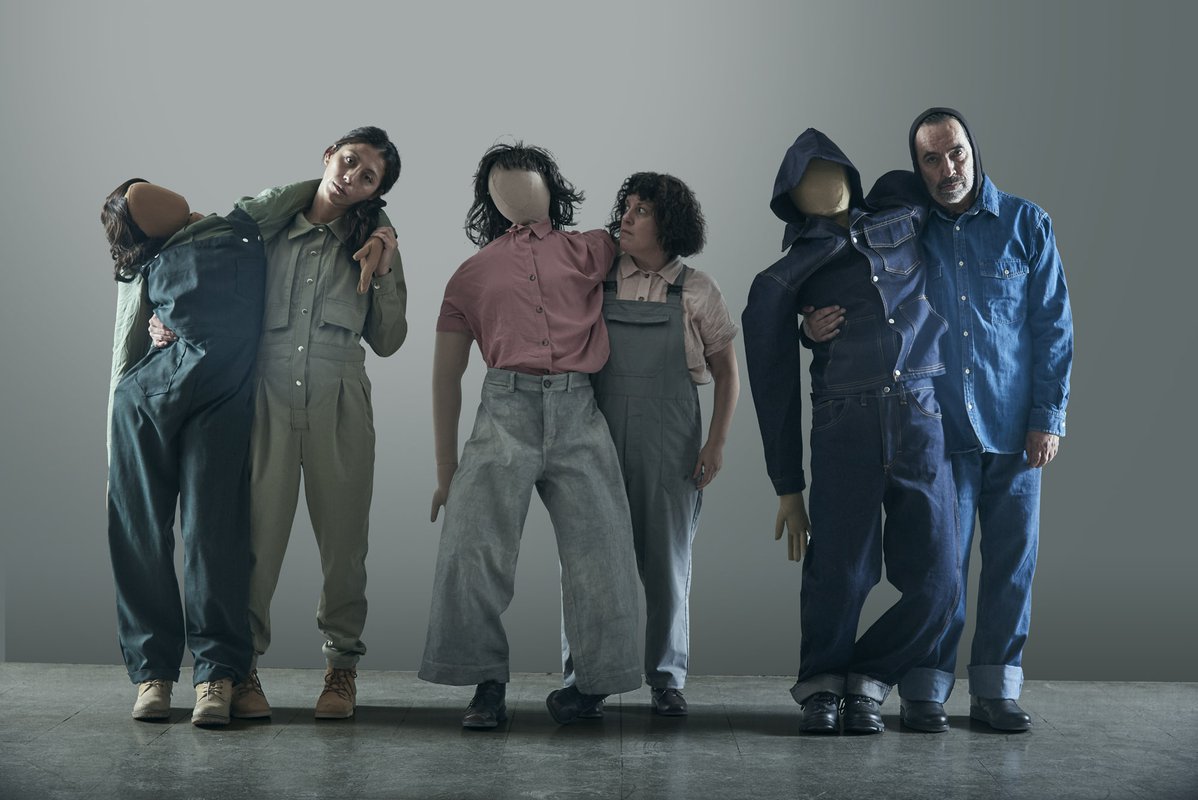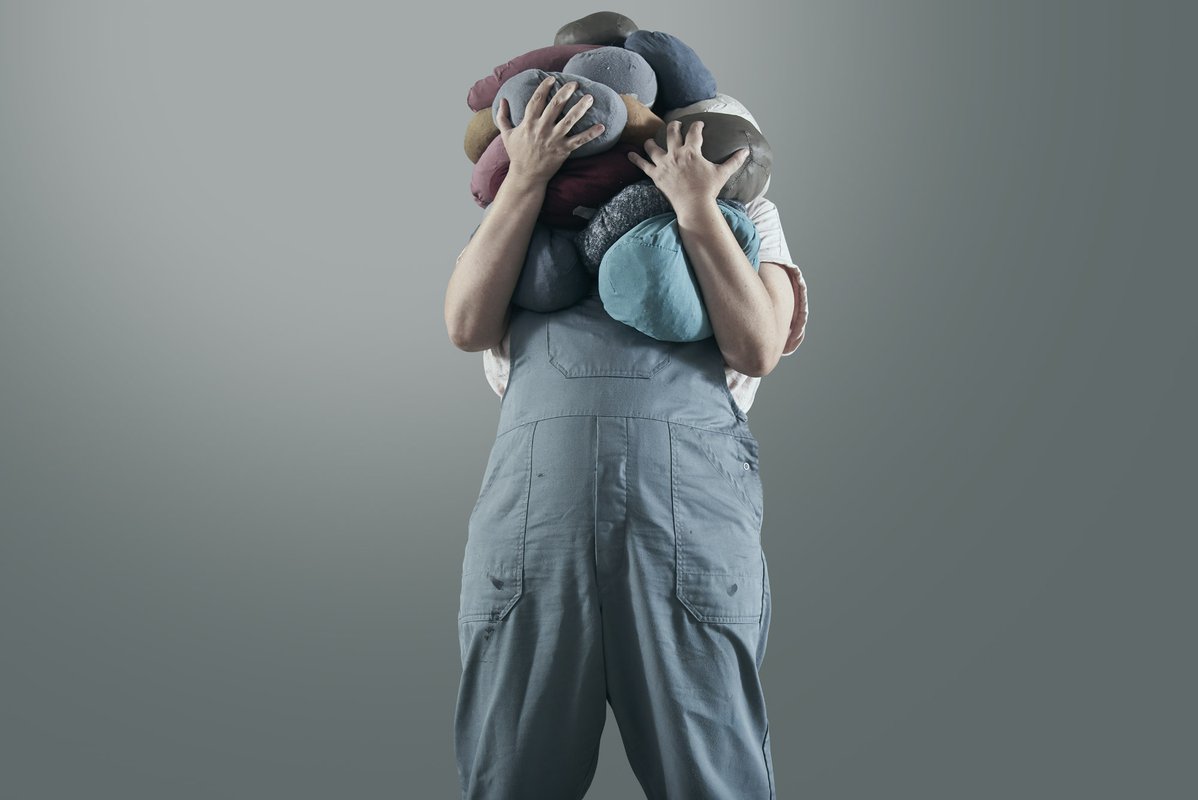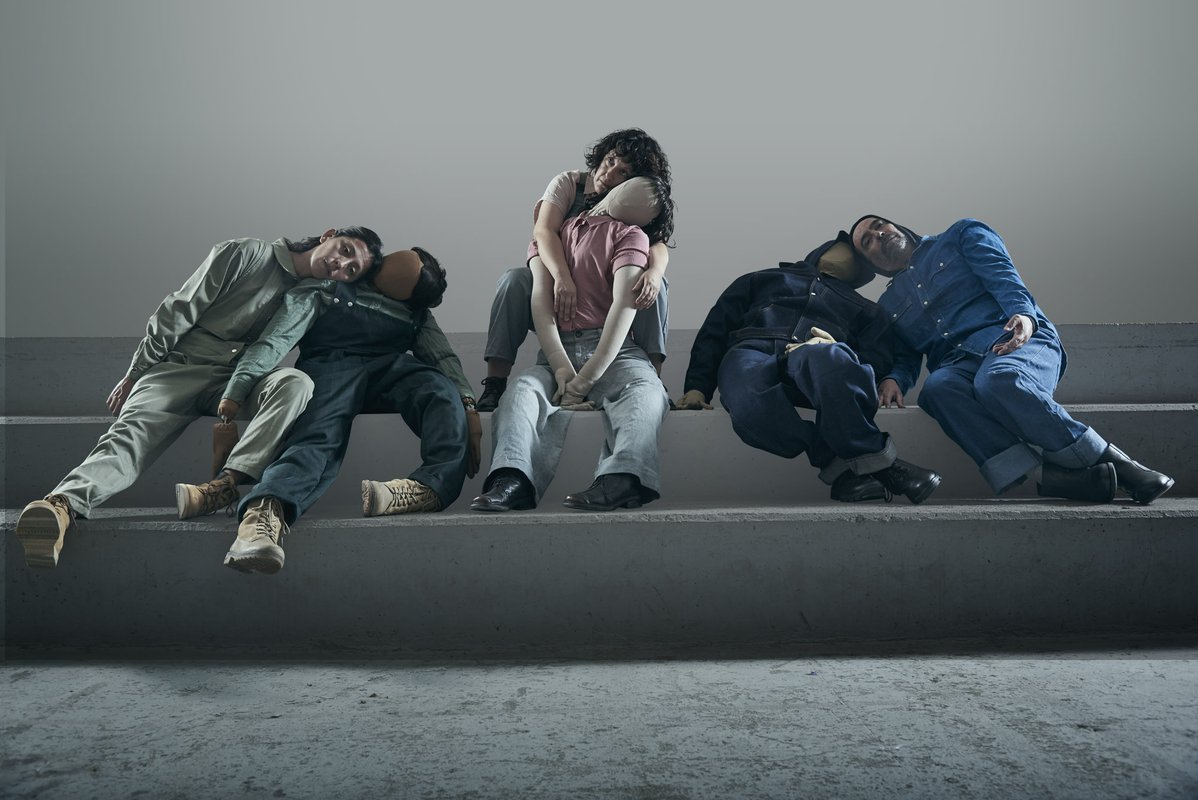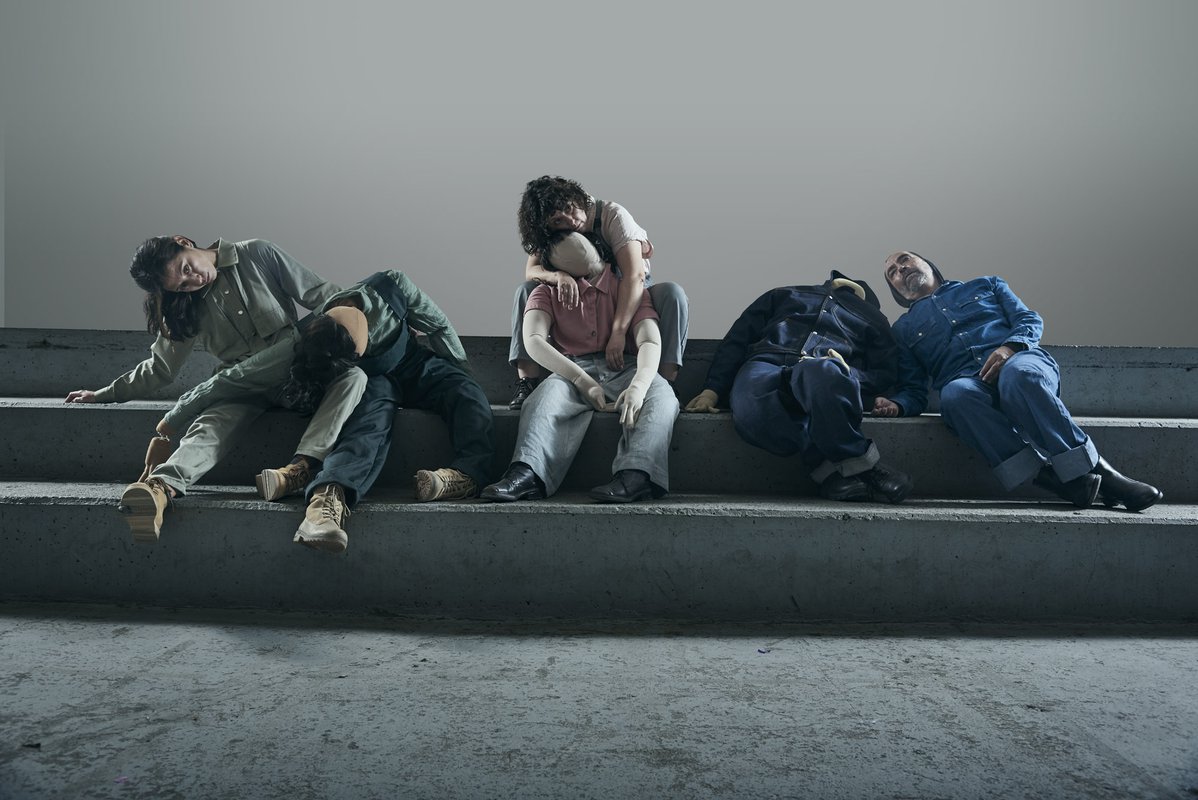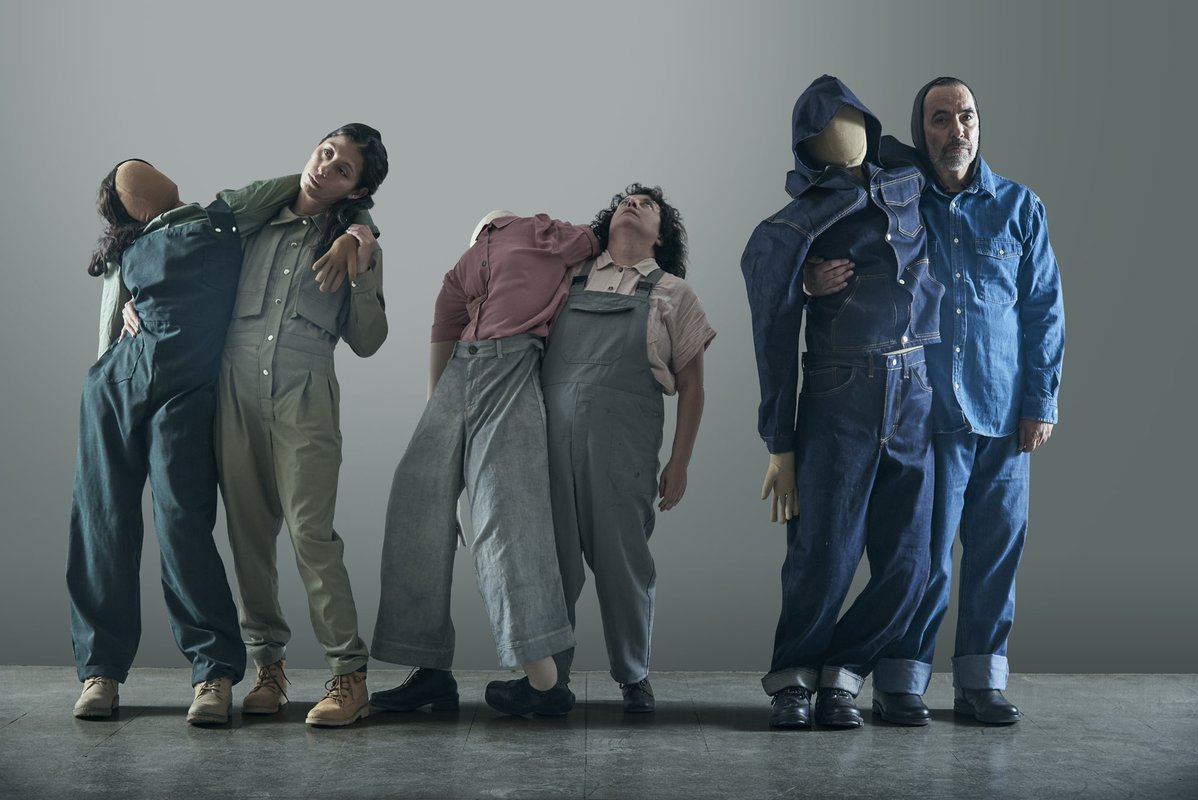Theatre
Direction and Dramaturgy Manuela Infante | Cast Marcela Salinas, Aliocha de la Sotta, Rodrigo Pérez | Integral Design Rocio Hernández | Chief Technician and Visuals Pablo Mois | Production Carmina Infante | Sound Design Manuela Infante | Audiovisual Design and Sound-Lighting Programming Alex Waghorn | Choreography Diana Carvajal | Musical Collaborations Valentina Villarroel and Marcos Meza | Music by Eliane Radigue, Pauline Oliveros, Kali Malone, Senyawa and Beverly Glenn-Copeland |
Sound Technician Diego Betancourt | Sound Technician Design Gonzalo Rodriguez | Theoretical Research and Dramaturgy Camila Valladares | Sound Technician Gonzalo Rodriguez | Theoretical Research and Dramaturgism Camila Valladares
This project was partially developed in residence at Kyoto Experiment Festival and Kyoto Arts Center, Parque Cultural de Valparaíso and NAVE.
A co-production by Centro Cultural Matucana 100, Fundación Teatro a Mil, NAVE and Parque Cultural de Valparaíso.
Partially funded by the Chilean Ministry of Culture, Arts and Heritage through FONDART 2020
Manuela Infante
Director
Explorando los límites de la creación
Manuela Infante is a theater director, dramaturge, musician and screenwriter. She holds a Bachelor of Arts from the University of Chile and a Master's degree in Cultural Analysis from the University of Amsterdam.
Her work is known for offering scenic creations that re-articulate relevant theoretical and philosophical issues. With her former company, Teatro de Chile (2002-2016) she wrote and directed more than ten plays, mostly financed by the Fondo Nacional de las Artes, including Prat, Cristo, Zoo and Realismo. She has been awarded “Best Play of the Year” by the Círculo de Críticos de Arte de Chile with Xuarez (2015) and Estado Vegetal (2017). Her work has been presented in Peru, Mexico, Argentina, Brazil, Uruguay, United States, Germany, Belgium, Holland, Ireland, Spain, Italy, Switzerland, Singapore, Korea and Japan.
In 2019 she was the first Chilean invited to the Venice “Biennale Teatro” with Realismo and Estado vegetal. That same year she won the Stückemarkt Award by Theatertreffen (Germany) with her play Estado vegetal. Manuela has co-produced with Festival Santiago a Mil (Chile), Festival de Modena (Italy), The Watermill Center (USA), Theater Bremen (Germany), Festival Internacional de Buenos Aires (Argentina), TheaterWorks (Singapore) and KVS (Belgium). She is currently producing plays with Schauspielhaus Bochum (Germany), Theater Basel (Switzerland), Teatro Nacional de Cataluña (Spain), M100 (Chile) and FITAM (Chile).
Three of Manuela’s plays have been published in Chile and abroad. In 2014, she was the first woman to be appointed Artistic Director of Chile's Muestra de Dramaturgia Nacional. As a musician she has composed, written and produced two albums with her band Bahía Inúti: "Stand Scared" (2011) and "Bahía Inútil" (2015). She has also been in charge of the sound design of most of her creations. As a screenwriter, she has worked in audiovisual productions in Chile, along with renowned directors such as Cristián Jiménez, Alicia Scherson, Sebastian Lelio and Marialy Rivas. She has also written scripts for international shows such as "Invisible Heroes" produced by YLE Finland.
PRESENTA
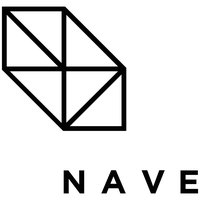



CON EL APOYO DE
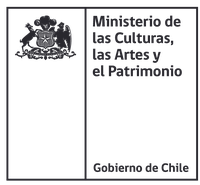
COLABORA

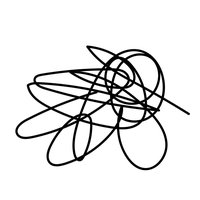
Cómo convertirse en piedra
Direction and Dramaturgy by Manuela Infante
- Chile
- Spanish
- 90 minutes
- + 15 años
Cómo convertirse en Piedra (2020) takes up an itinerary of speculative exploration, which started several years ago with the plays Realismo (2016) and Estado vegetal (2017): imagining a post-anthropocentric and non-humanist theater. The challenge was, and still is, to encounter the modern notion of humanity as the measure of all things through theatrical investigations aimed at decolonizing practices of humanist thinking.
The concept of "human" has served to sustain and justify significant exploitations and exclusions. Not only towards non-humans, but also towards humans considered less than human. A non-human theater is a critical practice, as well as a speculative choreography with other forms of social organization.
What would result from imitating rocks with the plot of play? What would a mineral play look like? What might emerge from the process of behaving like those that have never been born, will never grow, and will never die?
Rocks, as non-living matter, can shed critical light on the current hegemony of the rhetoric of life and the living, rooted in political and economic concepts that are prevalent today, such as growth, progress, development. A kind of bio-normativity where life operates as a norm that exercises its specific forms of oppression and exploitation. Cómo convertirse en piedra looks closely at how geological formations and human bodies share a history of exploitation and depletion. We are stone, too, and we can also be mined.
Working with pieces of eroded narratives, compressed together like layers of sedimented materials, the work presents a mineral dramatic structure, which speaks to us about what is written in stone, and of what we can find written, geologically, inside us. Pieces of eroded stories are organized in soundscapes, stacked one on top of the other by loops, like geological layers of rock, forming a rough... something.
Cómo convertirse en piedra
Direction and Dramaturgy by Manuela Infante
- Chile
- Spanish
- 90 minutes
- + 15 años
Cómo convertirse en Piedra (2020) takes up an itinerary of speculative exploration, which started several years ago with the plays Realismo (2016) and Estado vegetal (2017): imagining a post-anthropocentric and non-humanist theater. The challenge was, and still is, to encounter the modern notion of humanity as the measure of all things through theatrical investigations aimed at decolonizing practices of humanist thinking.
The concept of "human" has served to sustain and justify significant exploitations and exclusions. Not only towards non-humans, but also towards humans considered less than human. A non-human theater is a critical practice, as well as a speculative choreography with other forms of social organization.
What would result from imitating rocks with the plot of play? What would a mineral play look like? What might emerge from the process of behaving like those that have never been born, will never grow, and will never die?
Rocks, as non-living matter, can shed critical light on the current hegemony of the rhetoric of life and the living, rooted in political and economic concepts that are prevalent today, such as growth, progress, development. A kind of bio-normativity where life operates as a norm that exercises its specific forms of oppression and exploitation. Cómo convertirse en piedra looks closely at how geological formations and human bodies share a history of exploitation and depletion. We are stone, too, and we can also be mined.
Working with pieces of eroded narratives, compressed together like layers of sedimented materials, the work presents a mineral dramatic structure, which speaks to us about what is written in stone, and of what we can find written, geologically, inside us. Pieces of eroded stories are organized in soundscapes, stacked one on top of the other by loops, like geological layers of rock, forming a rough... something.
Direction and Dramaturgy Manuela Infante | Cast Marcela Salinas, Aliocha de la Sotta, Rodrigo Pérez | Integral Design Rocio Hernández | Chief Technician and Visuals Pablo Mois | Production Carmina Infante | Sound Design Manuela Infante | Audiovisual Design and Sound-Lighting Programming Alex Waghorn | Choreography Diana Carvajal | Musical Collaborations Valentina Villarroel and Marcos Meza | Music by Eliane Radigue, Pauline Oliveros, Kali Malone, Senyawa and Beverly Glenn-Copeland |
Sound Technician Diego Betancourt | Sound Technician Design Gonzalo Rodriguez | Theoretical Research and Dramaturgy Camila Valladares | Sound Technician Gonzalo Rodriguez | Theoretical Research and Dramaturgism Camila Valladares
This project was partially developed in residence at Kyoto Experiment Festival and Kyoto Arts Center, Parque Cultural de Valparaíso and NAVE.
A co-production by Centro Cultural Matucana 100, Fundación Teatro a Mil, NAVE and Parque Cultural de Valparaíso.
Partially funded by the Chilean Ministry of Culture, Arts and Heritage through FONDART 2020
Manuela Infante
Director
Explorando los límites de la creación
Manuela Infante is a theater director, dramaturge, musician and screenwriter. She holds a Bachelor of Arts from the University of Chile and a Master's degree in Cultural Analysis from the University of Amsterdam.
Her work is known for offering scenic creations that re-articulate relevant theoretical and philosophical issues. With her former company, Teatro de Chile (2002-2016) she wrote and directed more than ten plays, mostly financed by the Fondo Nacional de las Artes, including Prat, Cristo, Zoo and Realismo. She has been awarded “Best Play of the Year” by the Círculo de Críticos de Arte de Chile with Xuarez (2015) and Estado Vegetal (2017). Her work has been presented in Peru, Mexico, Argentina, Brazil, Uruguay, United States, Germany, Belgium, Holland, Ireland, Spain, Italy, Switzerland, Singapore, Korea and Japan.
In 2019 she was the first Chilean invited to the Venice “Biennale Teatro” with Realismo and Estado vegetal. That same year she won the Stückemarkt Award by Theatertreffen (Germany) with her play Estado vegetal. Manuela has co-produced with Festival Santiago a Mil (Chile), Festival de Modena (Italy), The Watermill Center (USA), Theater Bremen (Germany), Festival Internacional de Buenos Aires (Argentina), TheaterWorks (Singapore) and KVS (Belgium). She is currently producing plays with Schauspielhaus Bochum (Germany), Theater Basel (Switzerland), Teatro Nacional de Cataluña (Spain), M100 (Chile) and FITAM (Chile).
Three of Manuela’s plays have been published in Chile and abroad. In 2014, she was the first woman to be appointed Artistic Director of Chile's Muestra de Dramaturgia Nacional. As a musician she has composed, written and produced two albums with her band Bahía Inúti: "Stand Scared" (2011) and "Bahía Inútil" (2015). She has also been in charge of the sound design of most of her creations. As a screenwriter, she has worked in audiovisual productions in Chile, along with renowned directors such as Cristián Jiménez, Alicia Scherson, Sebastian Lelio and Marialy Rivas. She has also written scripts for international shows such as "Invisible Heroes" produced by YLE Finland.
PRESENTA




CON EL APOYO DE

COLABORA


